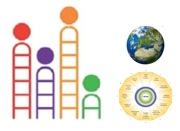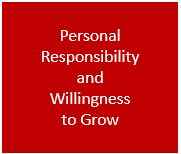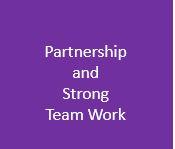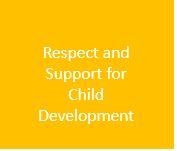I Matter Core Values
Philosophy of the I Matter Journey
Care for the vulnerable child and their family is an area of practice that has been a source of great confusion and has been long overlooked. As a result there are significant numbers of children and families in every school and community whose needs have been poorly understood and poorly met.
|
These children and families generally need |
These children and families too often get |
|
Well-informed senior leadership and policy context |
Poorly informed senior leadership and policy context |
|
Well-informed and skilled parents-carers |
Poorly informed and skilled parents-carers |
|
A well informed and skilled support team |
A poorly informed and skilled support team |
|
Careful use of assessment |
Poorly adapted assessment |
|
A careful programme to support engagement |
A careless programme of engagement |
|
An extended period of supported learning |
A haphazard stop start process of learning |
|
Careful progress monitoring |
Poor quality progress monitoring |
The I Matter Journey has therefore been carefully developed over a period of more than 20 years to be delivered in a particular way to support improved practice on the above needs
I Matter Relationship Health Practice is attachment based and focussed on the interpersonal and intrapersonal process. In accord with the research on relationship health our practice supports the development of essential skills and qualities found in all healthy relationships
- Structure: The adults, the leaders in the relationship, create organization and predictability which communicates safety
- Nurture: The adults provides caring that can calm and soothe in a manner that supports feeling good physically and emotionally
- Engagement: The adults are present in a manner that helps the child or other adult experiences being seen, heard, felt, and accepted
- Challenge: The adults supports the child or adult in the acquisition and mastery of new skills, enhancing the sense of competence and confidence
- Relationship Repair: The adults supports the process of ensuring that moments of relationship disruption get thought through and repaired
- Community: The adults do not care for the child or other adults in isolation - community is vital to the longer term learning process.
Therefore, I Matter Training should not be seen as something that involves a quick roll out by any party. Instead the I Matter Journey is designed to be used carefully and thoughtfully to impact practices and engage with parties who have become overwhelmed, disengaged and discouraged.
MORE FREQUENTLY ASKED QUESTIONS
I Matter Organisational membership Organisational Membership is for GPs, schools, Services who are prioritising children’s wellbeing and want to develop their own insight and skills as regards support for stronger healthier adult-child relationships (and particularly parent/carer-child relationships at home) as being key to better outcomes for children in education, mental health, physical health and offending.
Our focus is on equipping adults to confidently meet the developmental needs of children.



